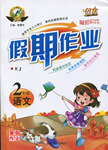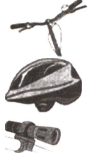题目内容
2. An elderly woman rang up the police at the of her neighbour.
A. suggestion B. request
C. requirement D. demand
2. B
2. B解析:句意:一个老太太应邻居的请求 给警察打了电话。
at the request of sb.意为 “应某人的请求”,为固定搭配。

练习册系列答案
 鸿图图书寒假作业假期作业吉林大学出版社系列答案
鸿图图书寒假作业假期作业吉林大学出版社系列答案
相关题目
